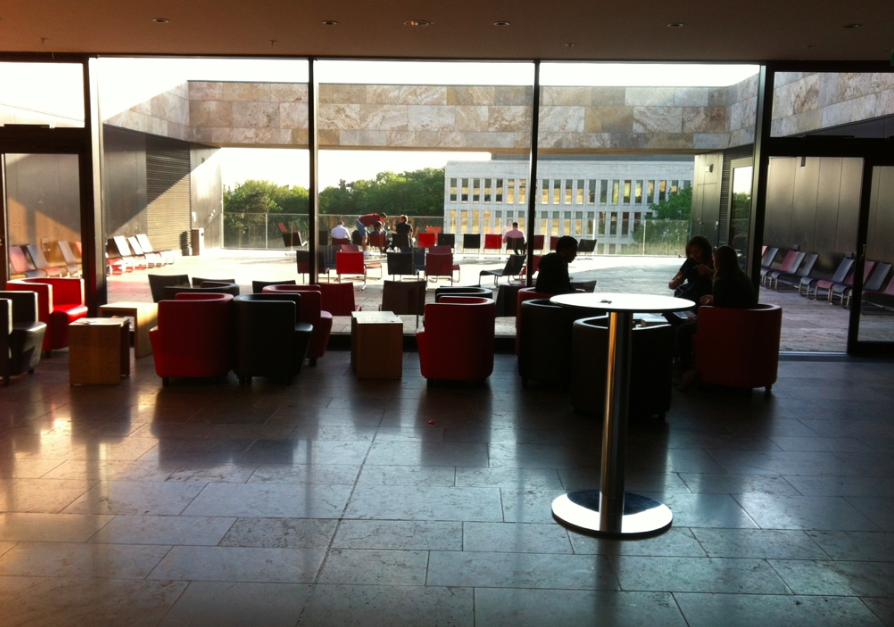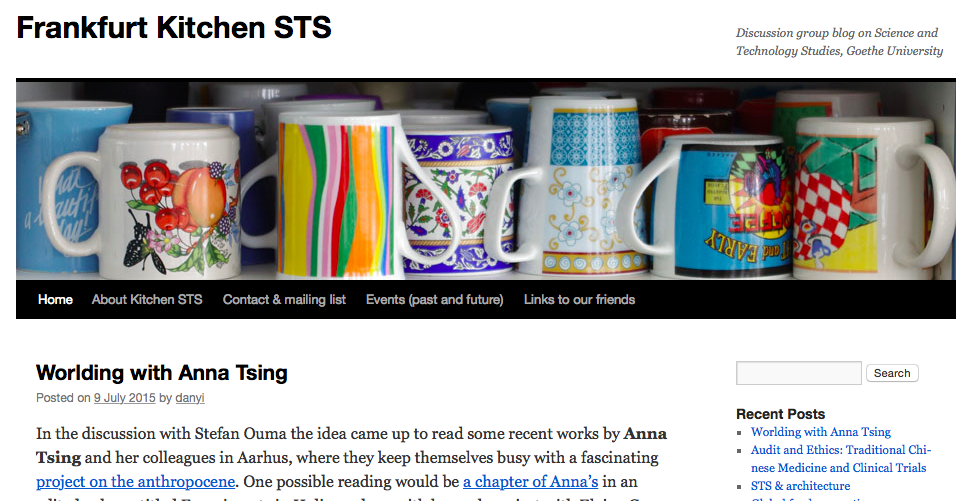During June 2015 I was invited to Frankfurt to share my work on ethical review with groups from both strands of my academic training.
Meike Wolf and her colleague Katrin Amelang convened a series at the Goethe University’s Institute of Cultural Anthropology and European Ethnology. The theme was Health, Body and Biotechnology, and the series aimed at introducing masters students to ‘the relations between bodies, biotechnology and health as well as the categories, techniques of regulation, institutionalizations, norms, ethics and artefacts, which are developed and differentiated in these relations in situated practice’ (Wolf and Amelang’s Colloquium Description). I shared with these students a draft of an article on the meeting of audit and hospitality in my ethics review committee work.
The second session was with the STS Kitchen, a cross-institute initiative coordinated by Endre Danyi and Susanne Bauer, who welcomed me warmly. The presentation drew on fieldnotes from Guangzhou and Shanghai (2010), and posed the question of how the evidence-based survey of ‘good ethical review’ handled trials which were being conducted under the rubric of “TCM”, traditional Chinese Medicine. Rather than a distinction taking place at the level of scientific practice itself (“Western Medicine vs TCM”), the encounter within the process of evaluating an ethical review of a TCM protocol showed up the ways in which an audit itself carries assumptions about what a ‘valid’ ethical review will look for. We read these notes against the recently published work by Wen-yuan Lin and John Law on ‘A Correlative STS: Lessons from a Chinese Medical Practice’ and tried to draw out how the situations spoke to one another.
